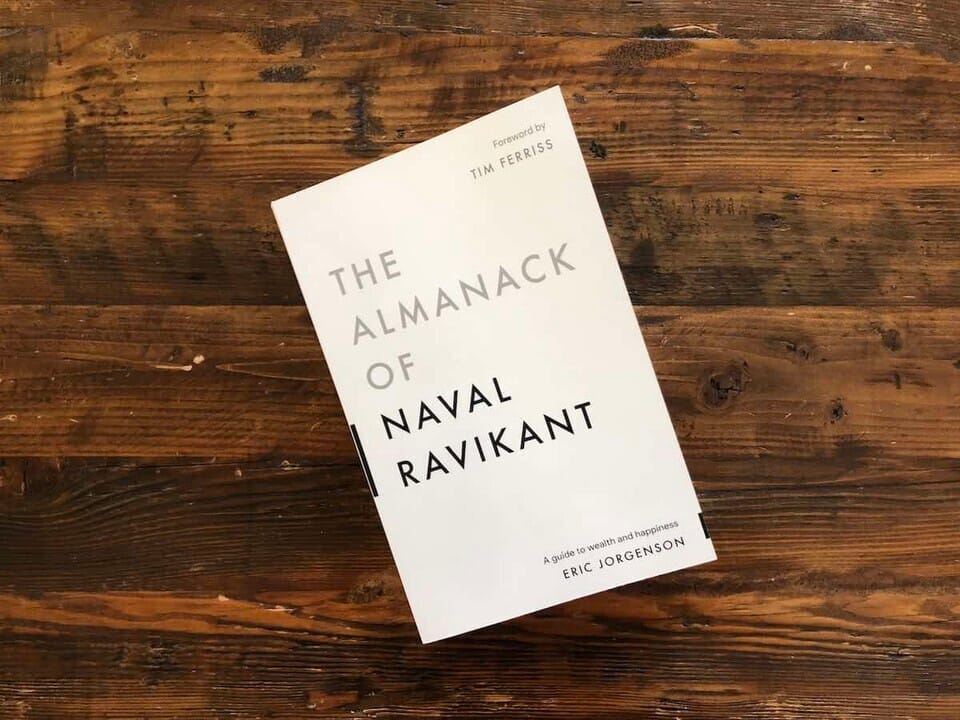

There are some books you read, and there are some books that rewire how you see the world.
For me, that book is The Almanack of Naval Ravikant. It’s a collection of wisdom from the philosopher-investor Naval Ravikant, transcribed and curated from his interviews and Twitter essays. I consider it my favorite book of all time because it’s not about quick hacks; it’s a manual for building a life of wealth and happiness from first principles.
Wealth, in Naval’s view, isn't about money—it’s about freedom. And happiness isn’t something you find—it's a skill you build. These ideas are the foundation of what it means to be truly future-proof.
After re-reading it for probably the tenth time, I’ve distilled the five most important insights that I believe are critical for navigating the future.
1. Stop Chasing Trends, Start Building "Specific Knowledge"
The world is constantly changing. The hot new skill today is obsolete tomorrow. The only way to build a lasting career moat is to develop "Specific Knowledge."
This isn't something you can learn in a classroom. It's your unique, creative stack of skills born from genuine curiosity. It's the intersection of your passions and talents that feels like play to you but looks like work to others. It’s what you know that can’t be easily trained or automated. In the age of AI, your specific knowledge is your ultimate competitive advantage.
Naval's Wisdom: "Specific knowledge is found by pursuing your genuine curiosity and passion rather than whatever is hot right now."
2. Embrace Accountability to Gain Leverage
Leverage is the force multiplier for your career. It’s how you disconnect your input (time) from your output (results). Naval outlines four types of leverage: Labor, Capital, Code, and Media. The last two are the most powerful because they are permissionless—you can create software or media that works for you while you sleep.
But you can't get leverage without first taking on accountability. This means taking risks under your own name—as a creator, a founder, or a leader. When you avoid accountability, you get paid for your time. When you embrace it, society rewards you with equity, trust, and the leverage to build real wealth.
Naval's Wisdom: "Embrace accountability, and take business risks under your own name. Society will reward you with responsibility, equity, and leverage."
3. Play Long-Term Games with Long-Term People
All the best things in life come from compound interest. This applies to your wealth, your relationships, and your knowledge.
Short-term, transactional thinking will always limit your potential. Whether you're building a business, a career, or a friendship, choosing to play long-term games with people you trust creates compounding returns. A strong network built on mutual respect is a safety net and a launchpad. It’s the most resilient asset you can have.
Naval's Wisdom: "Play long-term games with long-term people. All returns in life, whether in wealth, relationships, or knowledge, come from compound interest."
4. Redefine Wealth as Freedom
We’re taught to chase status and money. But status is a zero-sum game, and more money doesn't automatically equal more happiness. Naval offers a better goal: freedom.
True wealth isn't a bigger house; it’s owning your time. It’s having assets—a business, a piece of software, an investment—that earn for you while you're not working. This simple redefinition changes everything. The goal is no longer just to earn more, but to build systems that grant you sovereignty over your days.
Naval's Wisdom: "Wealth is having assets that earn while you sleep. Money is how we transfer time and wealth. Status is your place in the social hierarchy."
5. Treat Happiness as a Skill
Perhaps the most future-proof idea of all is that happiness is not a prize you win from external achievements. It’s an internal skill you can practice and develop.
Naval argues that happiness is our natural state when we remove the feeling that something is missing from our lives. It's the skill of being present, of choosing to interpret events in a way that serves you, and of understanding that desire is a contract you make with yourself to be unhappy until you get what you want. A resilient career is powerful, but a resilient mind is invincible.
Naval's Wisdom: "Happiness is a choice and a skill you develop. It’s not something you find; it’s something you create."
These five insights are the bedrock of the FUTURE PROOF mission: building a life where you are not just resilient to change, but antifragile—a life where you actually benefit from uncertainty.
I'd love to hear from you: Have you read the book? If so, what was your biggest takeaway? If not, which of these ideas resonates with you the most right now?